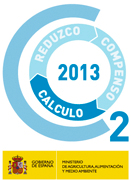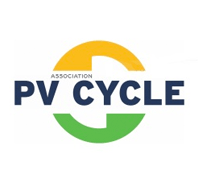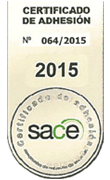INTEGRATED MANAGEMENT POLICY
The Management of Bester, a company dedicated to the Development, EPC and O&M of Renewable Energy plants, recognizes QUALITY and CUSTOMER SERVICE as a basic support for its Business Management Policy, and establishes the general principles and objectives that should inspire this policy and underline its commitment to provide the means and resources necessary to continuously improve the effectiveness of its Management System, minimizing the environmental impact (carbon footprint) generated by its activity, and providing control elements for the provision of services in safe conditions.
The carbon footprint is a measure of the total amount of CO2 and other greenhouse gas (GHG) emissions directly and indirectly caused by an individual, activity, organization or product throughout its life cycle.
Faced with the current scientifically demonstrated trend of Climate Change in development, the coming years will be a key period that will lay the foundation for the transition to a more sustainable energy model.
To this end, Bester has launched a climate change strategy, the objective of which is to deepen the measurement, optimization of energy consumption, as well as the measurement of the contribution of our activity to the generation of greenhouse gases (GHGs) and their reduction due to the facilities developed, orienting our organization towards a low-carbon economy.
The Principle that underpins our Policy is the commitment of this Management to comply with the requirements derived from the demands of our clients, the applicable legal and regulatory requirements, and ensuring to maintain and improve the health and safety conditions of its employees, ensuring that the services we provide to our clients comply with these specifications and regulations.
This management policy forms a framework for defining the objectives of the management system and will be reviewed periodically to check that it is in line with the activity we carry out at Bester.
The priority objective of our management system is the satisfaction of the client and other interested parties (administration, social environment, etc.), in order to achieve sustainability throughout the value chain. The Client is the reason for our work and the ultimate judge of quality. In order to do this, they must be given works without defects, in safe working conditions, that satisfy their needs and expectations and that, at the same time, improve the competitiveness and guarantee the profitability of our organization, always within a framework of sustainable growth.
The concept of Quality does not only refer to the projects but to all the activities and the work of each and every one of Bester’s people, or those who work on behalf of Bester.
Quality “is not born; it is made”, resulting from the coordinated efforts of all members of the organization.
All the components of Bester, starting with the Management, give priority to the Quality of the services, respect for the environment and conditions of safety and health in the development of their work. Improving Quality, Environmental Behavior and Health and Safety conditions of employees is everyone’s responsibility, and in order to transmit this commitment, it is communicated to all Bester staff and other interested parties.
Every member of Bester should know who their clients are and what they expect from their work.
Internally, each person is a supplier of the next operation, and is a client of the previous one, without losing sight at all times of the fact that everyone’s contributions contribute to Client satisfaction. In order to achieve the highest levels of Quality, it is essential to have a collaborative, team-working attitude. An individualistic attitude, alien to the needs of others, has no place in this System or in the Company.
In order to achieve Quality in our services and in a way that respects the environment, as well as the health and safety conditions of our employees, it is essential to motivate and train our staff in their professional development, giving them the necessary responsibilities and authority under the principle that:
Quality, environmental management and responsible occupational risk prevention impose a rigorous system and a constant effort for improvement by all. Our future depends on it, without compromising that of future generations and ensuring the health and safety of our employees.



